Do you know PhoenixOne VS Surf?
It is no exaggeration to say that using the right AI tools can increase efficiency by more than double, whether in investment research or writing. But with so many products on the market, which one should you choose?
I conducted in-depth tests on two mainstream products:
@Phoenix_Chain's PhoenixOne (completely free)
@BuildOnCyber's Surf (early bird price Pro version $29 per month, Max version $299 per month)
A comparative test was conducted from three core dimensions: sentiment analysis, on-chain data processing, and project research. The results were somewhat unexpected.
I asked the first question to both AI products:
"Using X as a platform, analyze the public sentiment after the launch of the Trump family's DeFi project WLFI, summarizing the views of the bullish and bearish camps. Who are the representatives of these views?"
In conclusion, there was not much divergence in the responses of the two products: the bullish camp mainly bases its views on Trump's political influence and the compliance potential of DeFi, while the bearish camp is concerned about centralization risks and tokenomics issues.
The difference is that Surf provides more detailed answers and has excellent formatting, making it easy to distinguish between bullish and bearish viewpoints; PhoenixOne not only provides detailed responses but also offers predictions and analyses of sentiment evolution.
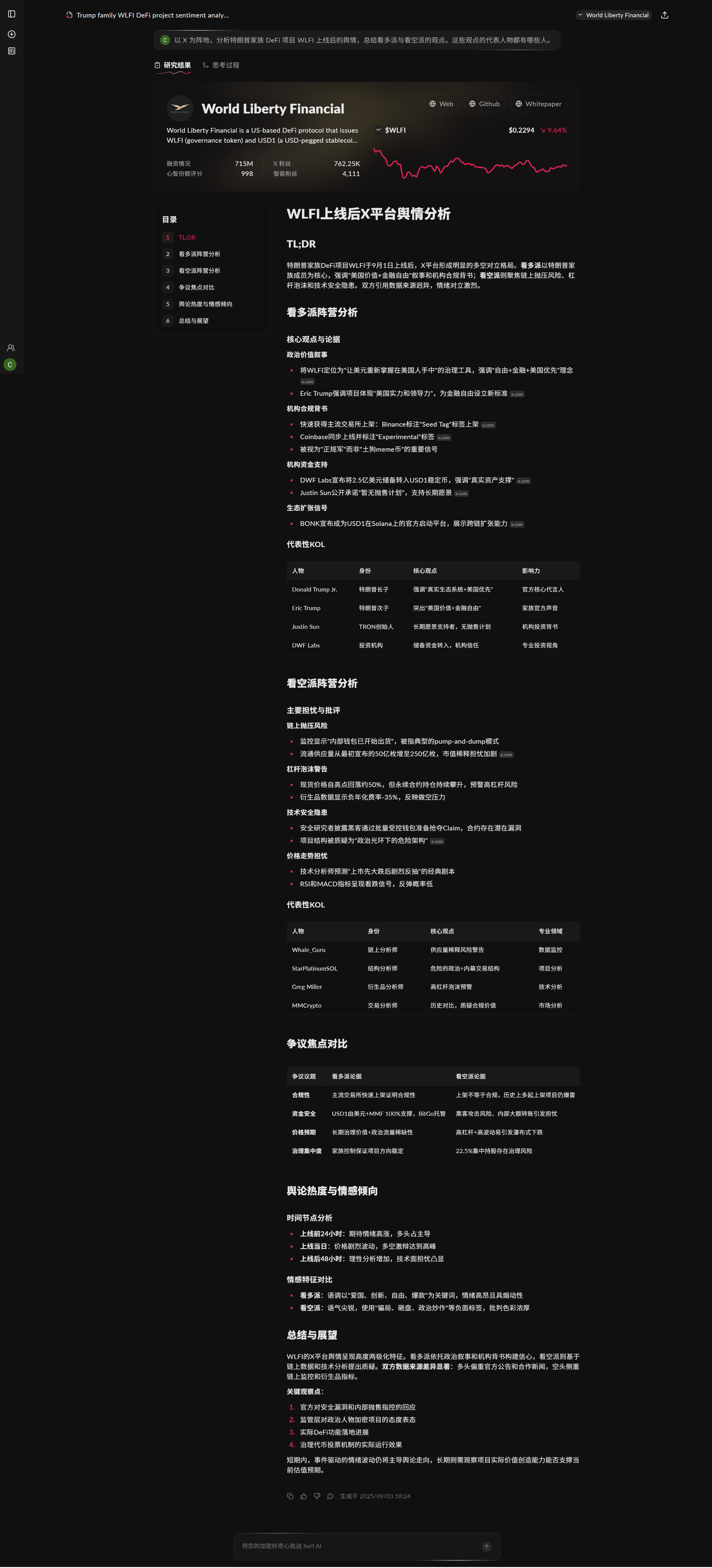
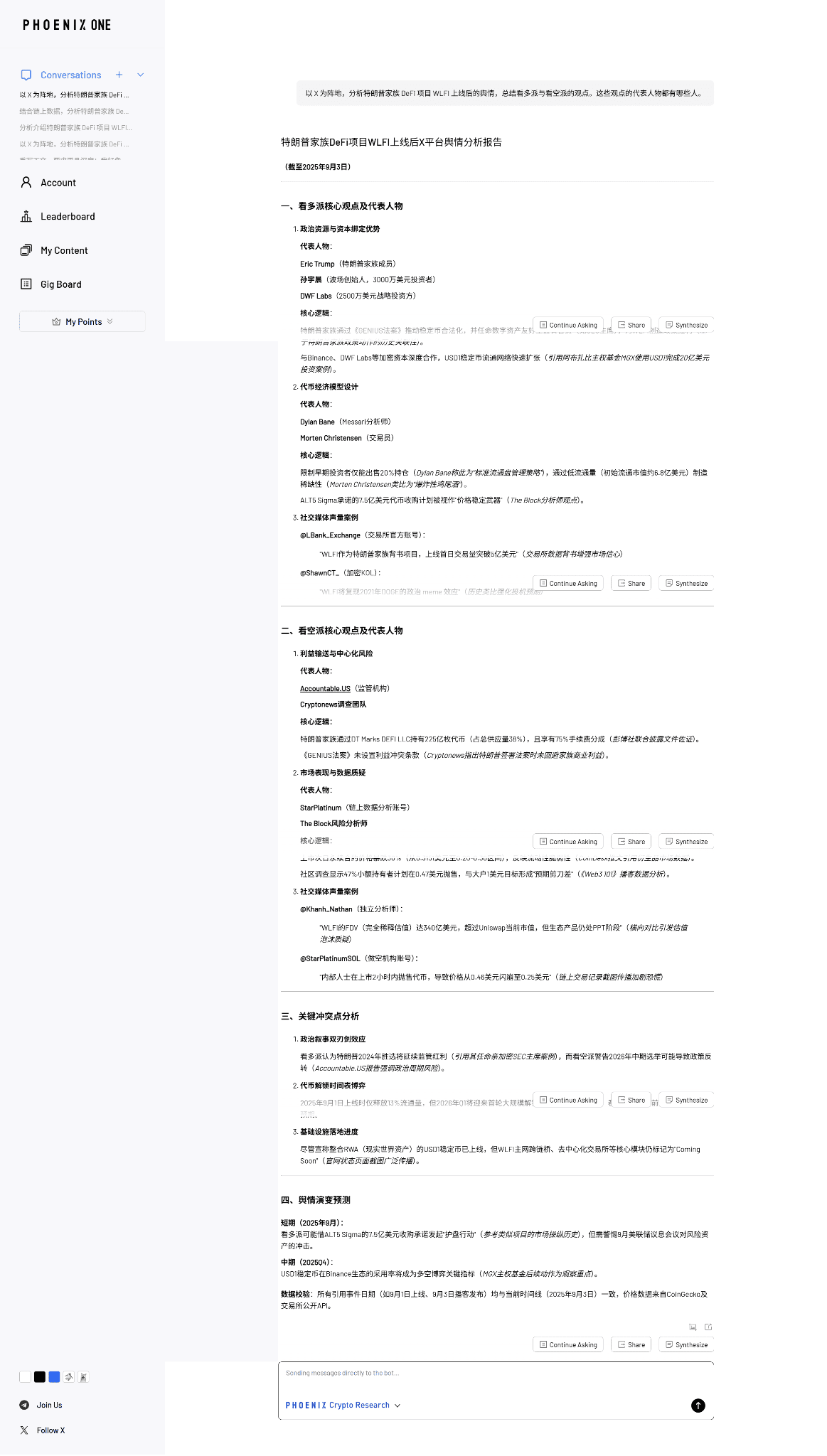
The second question:
"Analyze and introduce the Trump family's DeFi project WLFI, focusing on the project's vision, history, and team aspects."
The difference is that Surf is detailed but more official, using a lot of professional jargon such as "regulatory-friendly DeFi niche market" and "free finance"; PhoenixOne's responses are more concise, clear, and also specify the content sources (which is a big plus).

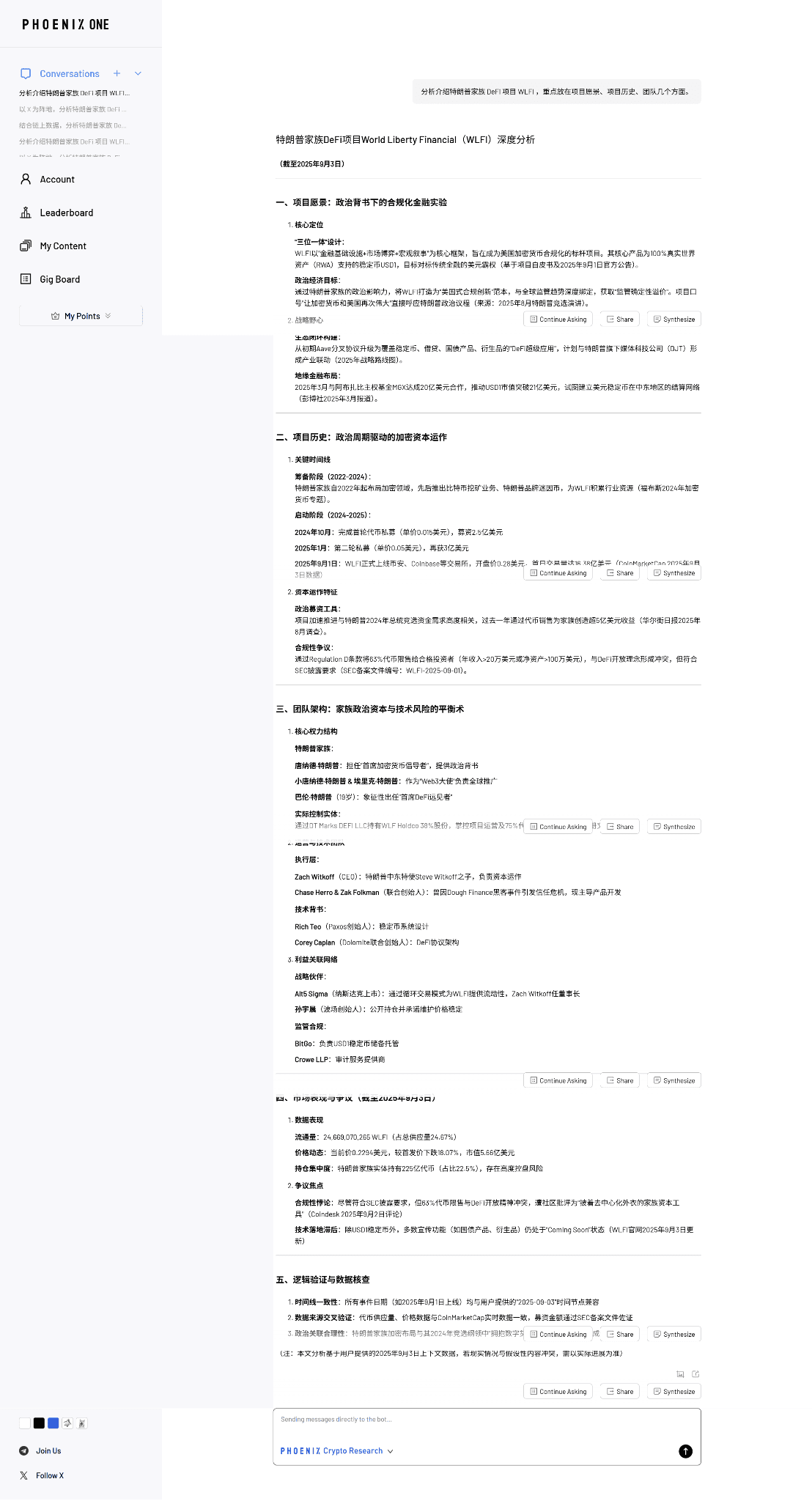
The third question:
"Analyze the chip structure of the Trump family's DeFi project WLFI based on on-chain data. Are there any hidden concerns in this chip structure?"
The difference is that Surf's answers are more detailed, analyzing the chip structure of different chains for WLFI separately, while PhoenixOne only provided an overall analysis. The suggestions given by PhoenixOne are also more detailed and specific than those of Surf, such as paying attention to the address movements of Sun Yuchen and the signals of the Trump family's wallet transfers.
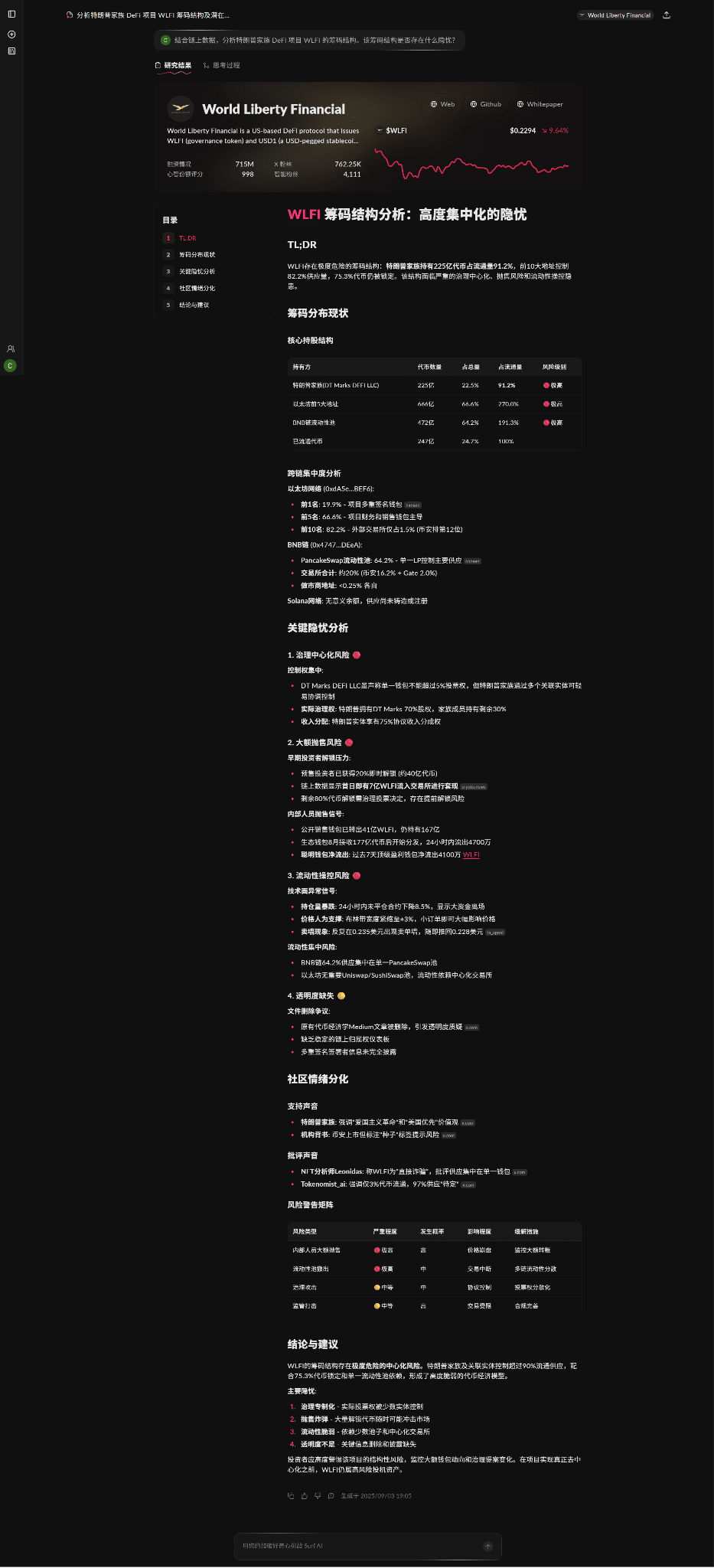
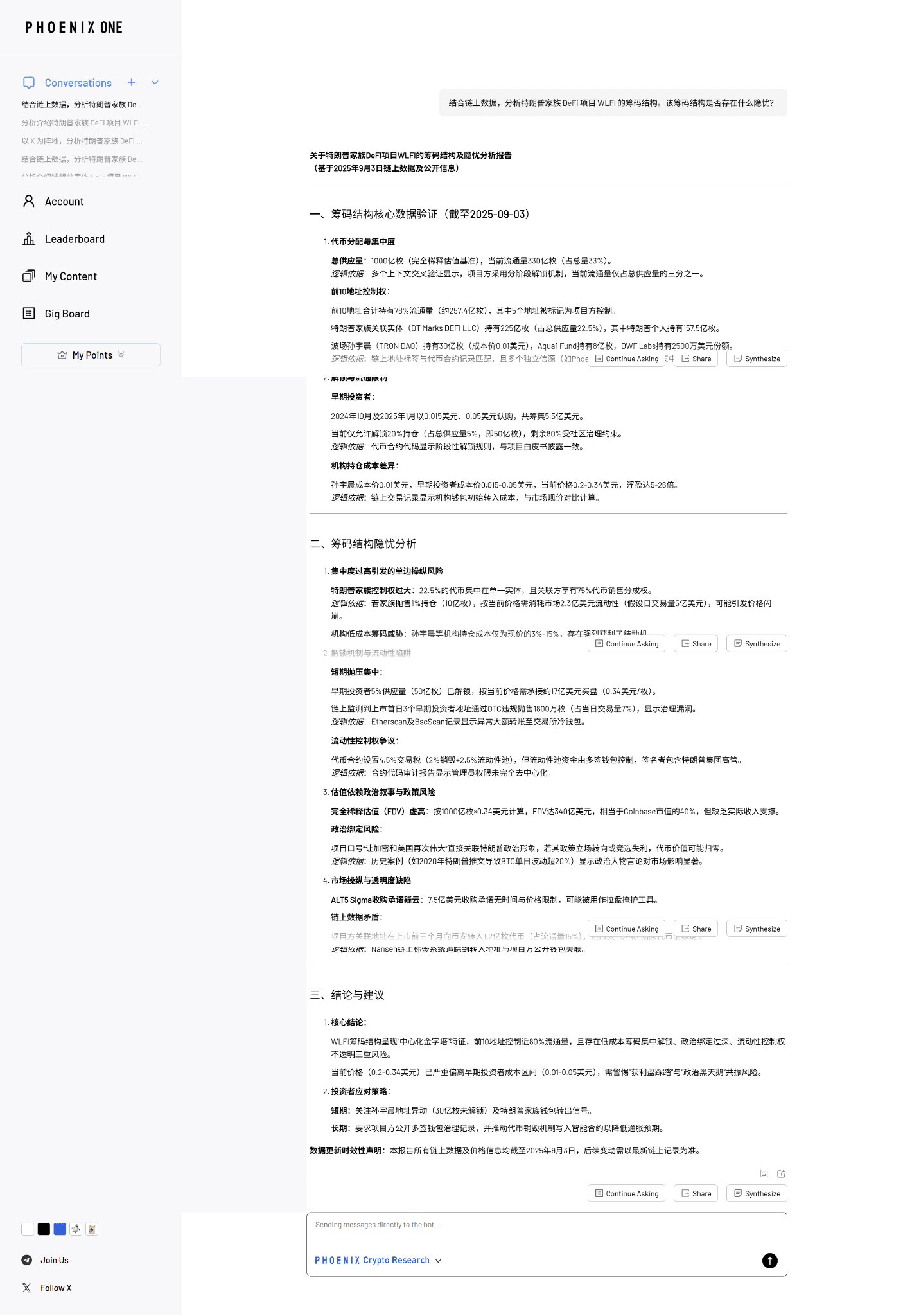
To summarize, let's not sugarcoat it.
Surf excels in richness and detail but is slightly expensive, and the response generation speed is slow (deep content can sometimes take 8 minutes); PhoenixOne is free and user-friendly, with a faster response generation speed, averaging 2-3 minutes. For real users, PhoenixOne is completely sufficient.
Finally, PhoenixOne has launched the new Create-to-earn incentive, where users can earn points and airdrops by creating quality content on topics and posting it on Twitter.
The specific rules are as follows:
The top 100 users on the leaderboard will receive points and $PHB airdrops.
Liking other articles can also earn you 100 points daily.
$PHB is a popular token in Binance's AI sector, with good potential for imagination; do some research here: https://one.phoenix.global/



